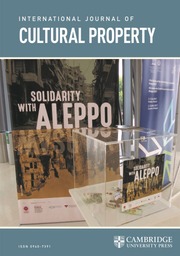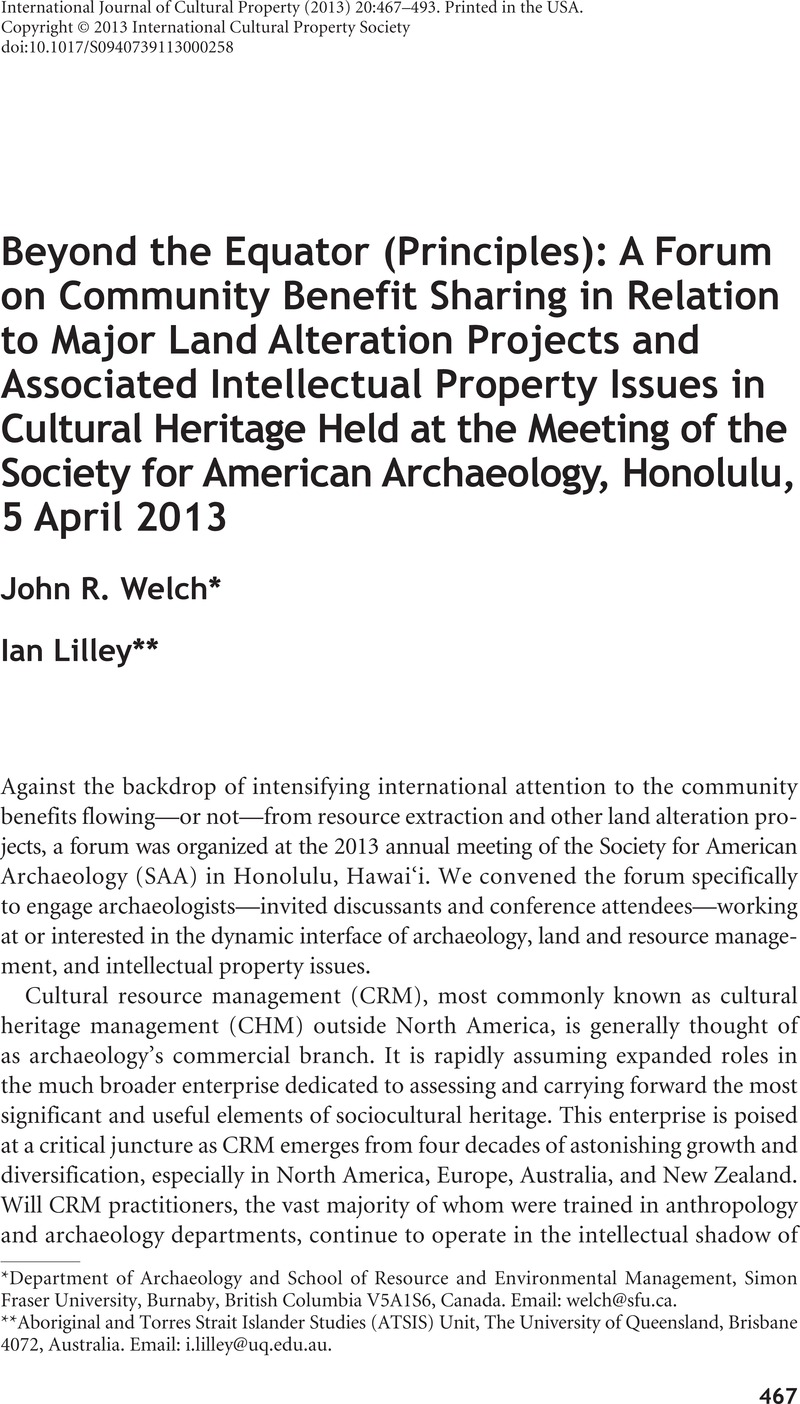Crossref Citations
This article has been cited by the following publications. This list is generated based on data provided by Crossref.
Soderland, Hilary A.
and
Lilley, Ian A.
2015.
The fusion of law and ethics in cultural heritage management: The 21st century confronts archaeology.
Journal of Field Archaeology,
Vol. 40,
Issue. 5,
p.
508.
Samuels, Kathryn Lafrenz
and
Lilley, Ian
2015.
Global Heritage.
p.
217.
Denton, David
Izaguirre, Dario
Casault, Kathryn
and
Izaguirre-Falardeau, Gabrielle
2019.
Avant les inondations.
Recherches amérindiennes au Québec,
Vol. 48,
Issue. 3,
p.
57.
Welch, John R.
2020.
Archaeologies of the Heart.
p.
23.
Iaione, Christian
De Nictolis, Elena
and
Santagati, Maria Elena
2022.
Participatory Governance of Culture and Cultural Heritage: Policy, Legal, Economic Insights From Italy.
Frontiers in Sustainable Cities,
Vol. 4,
Issue. ,



